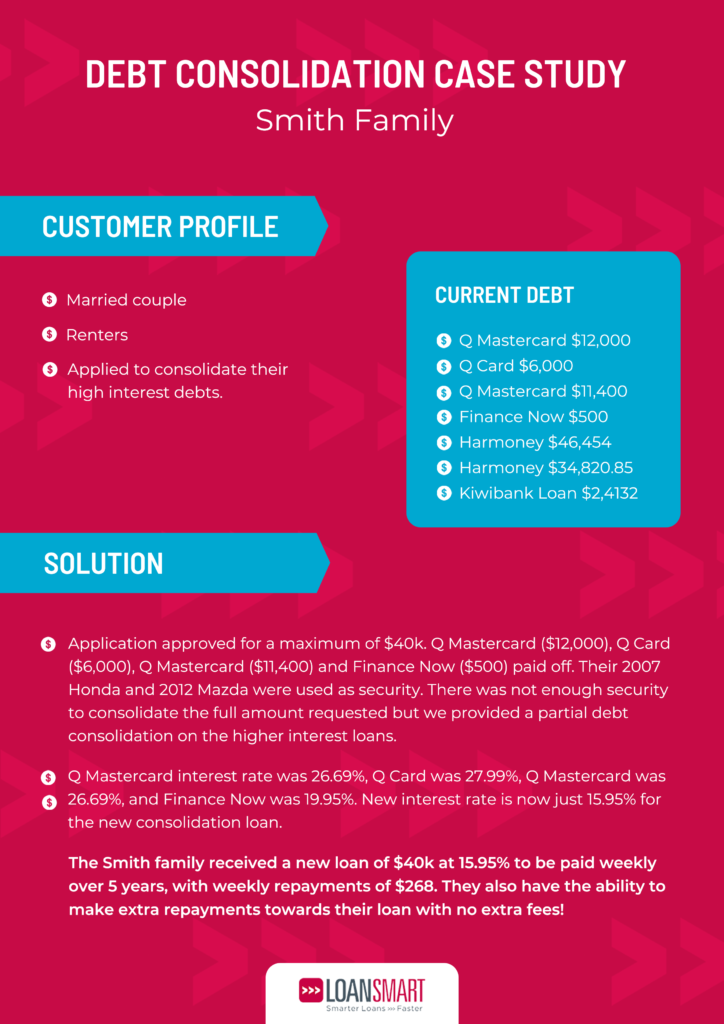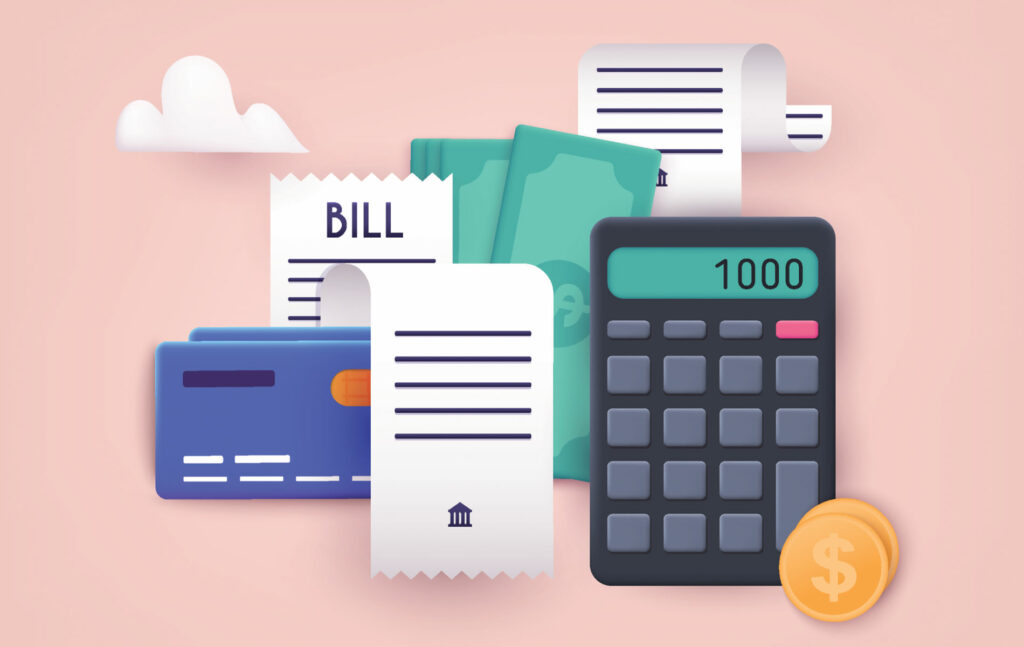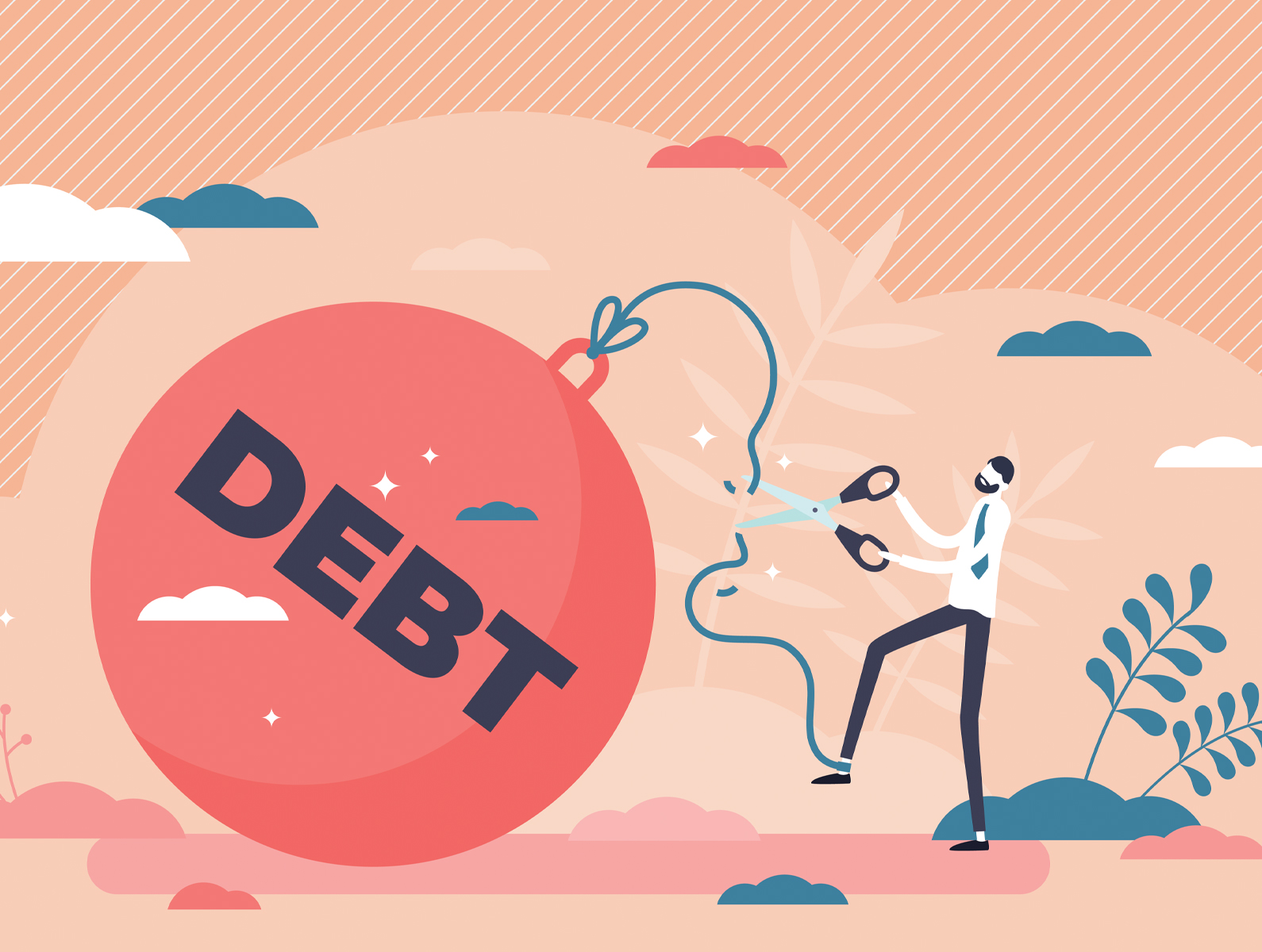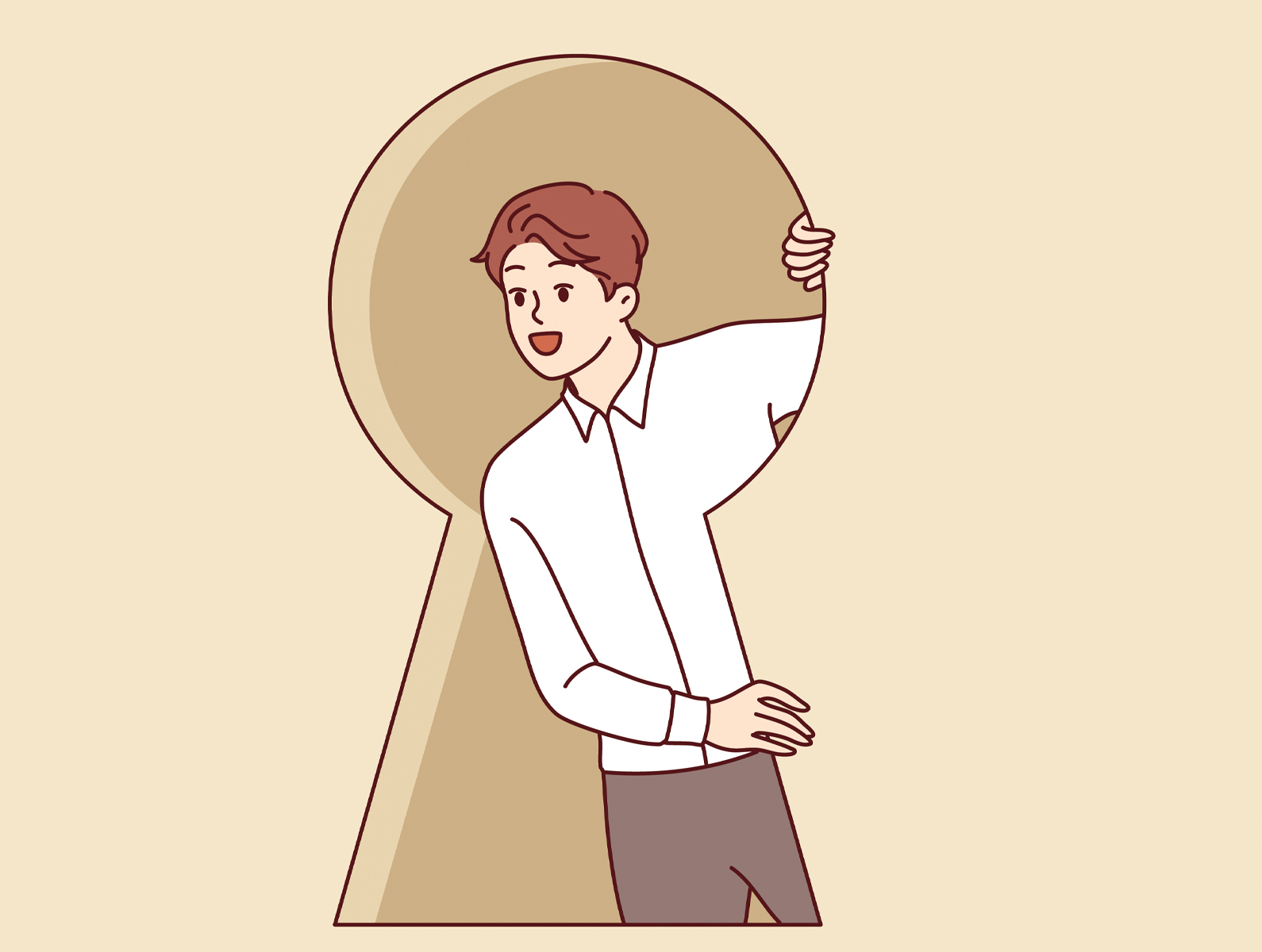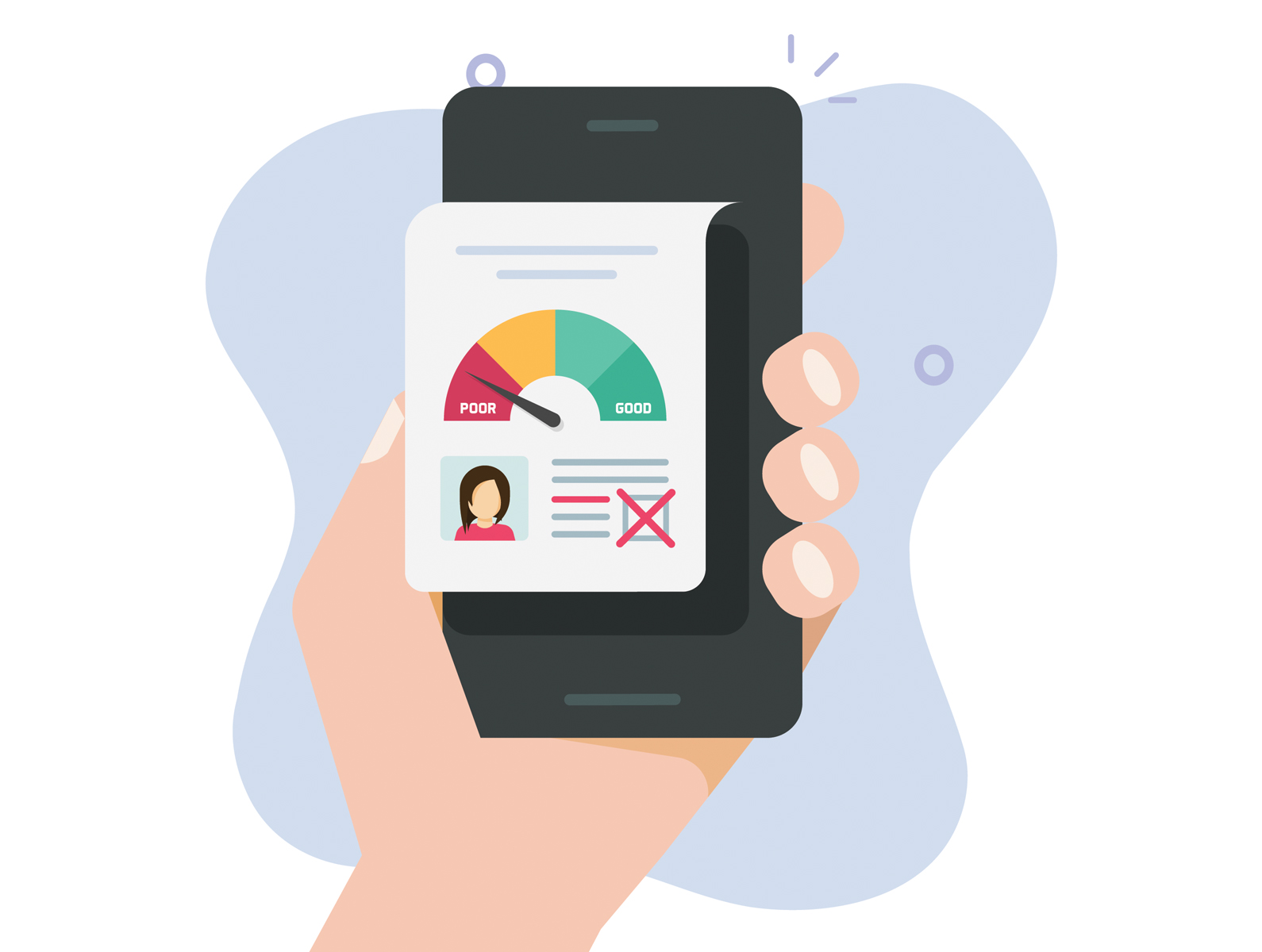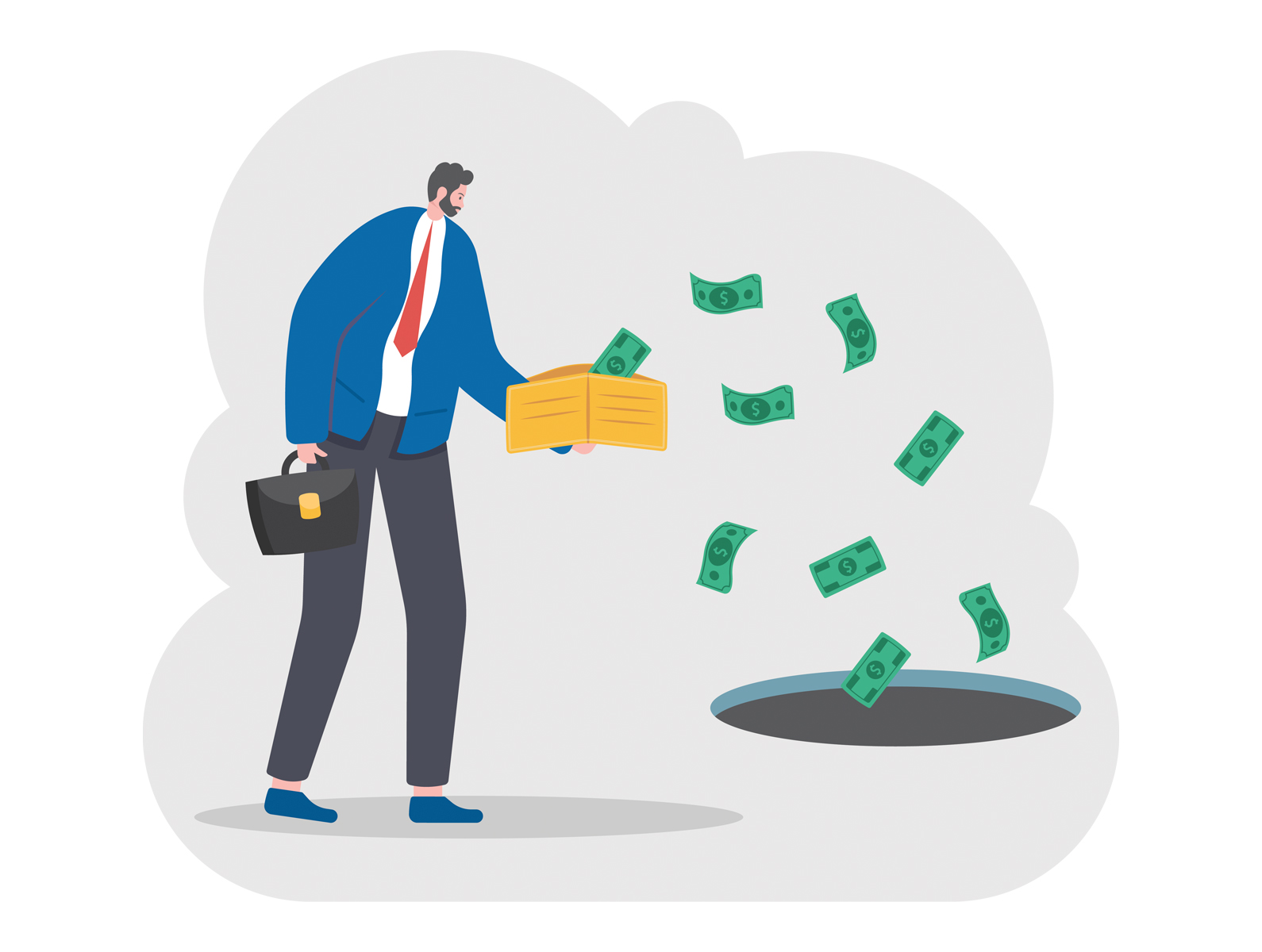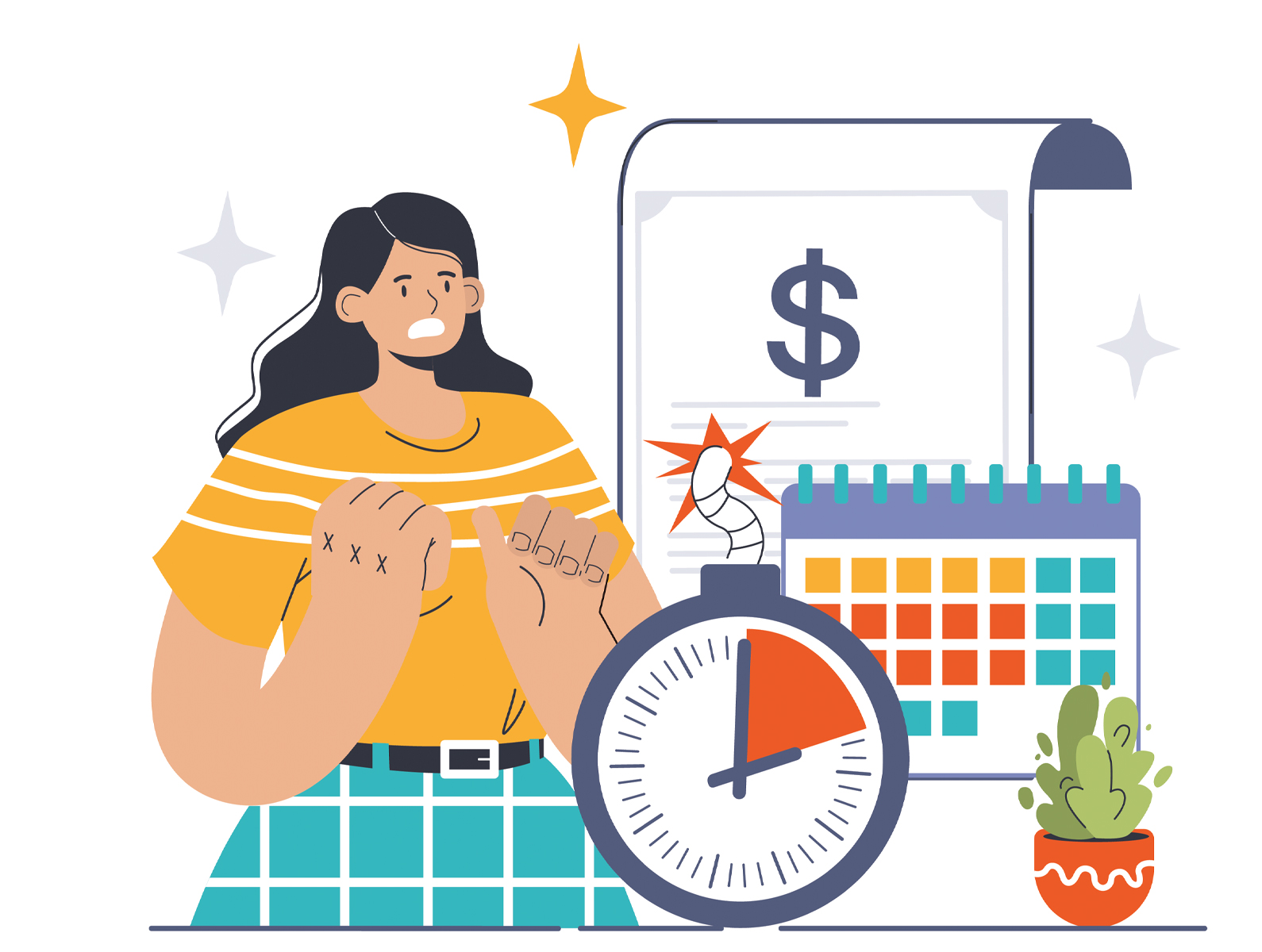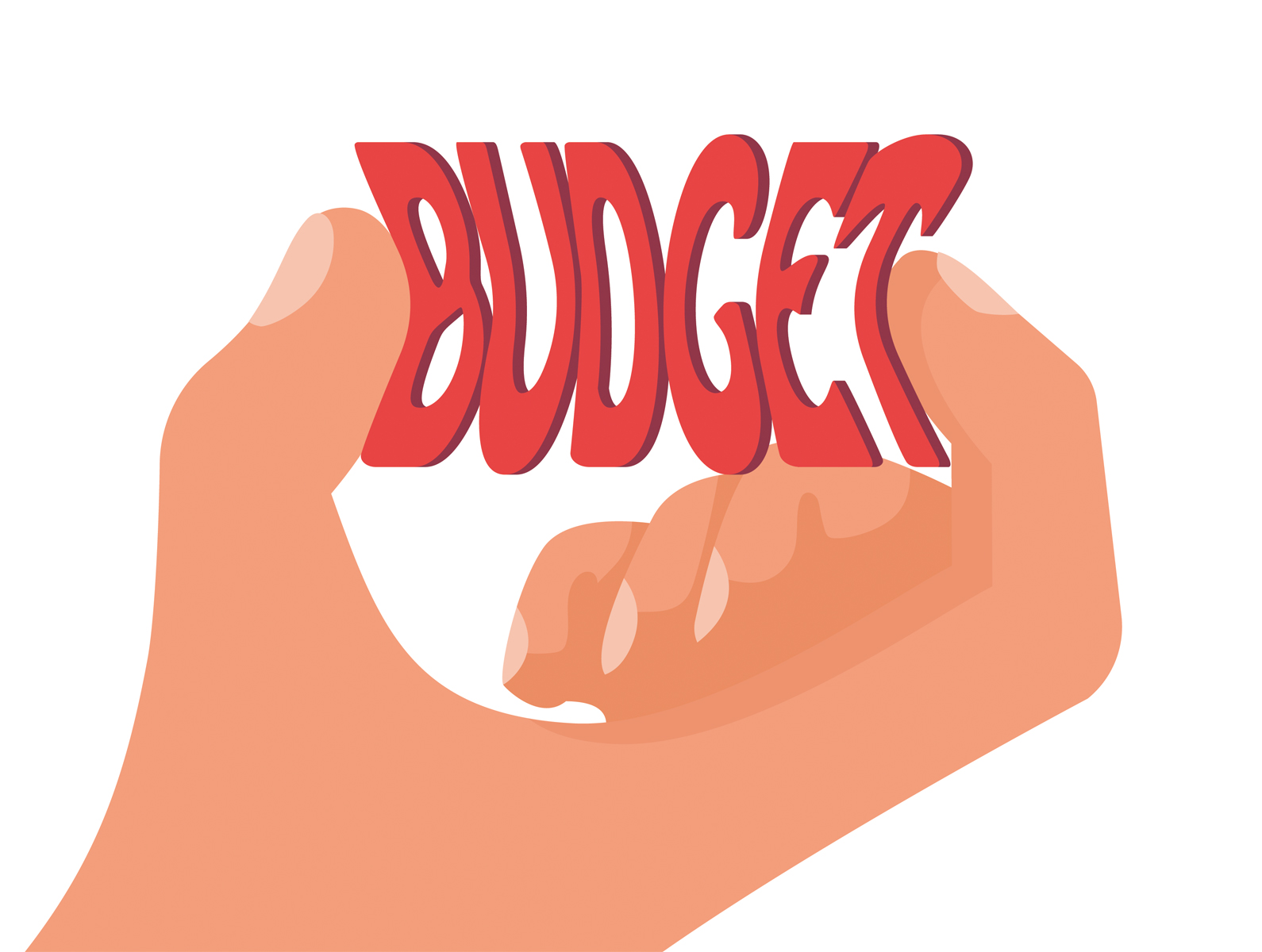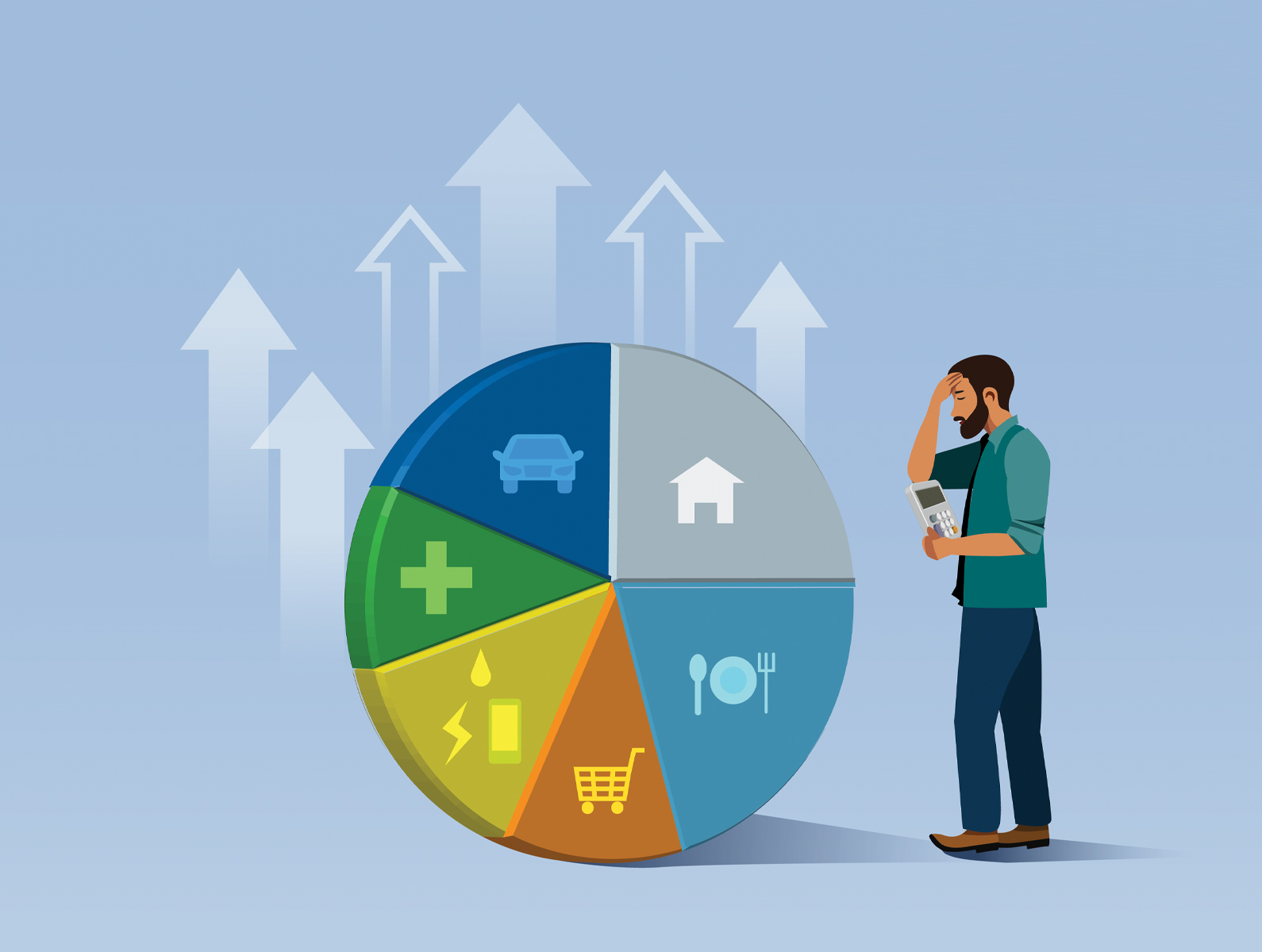Want to consolidate loans and credit cards? Learn from the Smith Family
Welcome back to our Debt Consolidation series where we look at how four borrowers can make loan repayments more affordable. This week, we feature the Smiths, a married couple who rent and owe over $135,000 in personal loans. The Smiths are looking to consolidate loans and credit cards and borrow an extra $10,000. That sounds like a tall order. Let’s see how they get on.
Inflation is really starting to bite into the paychecks of many families, reaching 7.3% – the highest it’s been since 1990 when it was at 7.6%. The average family has seen prices skyrocket and their paychecks shrink in comparison. A lot of companies base their pay increases on CPI, typically around 3%, but at 7%, some aren’t always keen to respond by raising wages at the same rate! So if your paycheck hasn’t moved with inflation, what are your options? Reduce expenditure or borrow?
Well, if you’ve already been living frugally, there may not be much left to cut. Another way you can look at reducing expenses is with debt consolidation – more specifically, partial debt consolidation. Or you may want to look at a combination of both – borrowing more and consolidating high interest debts.
In this article we’ll discuss how partial debt consolidation and a top-up can help you make ends meet during tough economic times like these.
Too often we see families panic when they can’t afford to stay afloat, and it’s easy to understand why. When the bills are due, and you’ve got dependents to take care of, it can feel like applying for a loan is your only option. But that high-interest loan could end up costing you more in the long run.

The Smiths are one family who know this all too well—they took out seven personal loans ranging from $500 to over $45,000 each.
In total, they owe $135,307.37 with the highest interest rate being 27.99%. To help fund some essential expenses, they need to borrow another $10,000.
The Smiths wanted to:
1. Lower their repayments
2. Reduce interest costs and
3. Get a top up.
Here’s how Loansmart helped them.
The Smiths already had one of their seven loans at a highly competitive rate of 13.79%. The interest rate you are offered depends on your financial situation: credit score, affordability and security. At this point in time, 15.95% was the best rate we could offer the Smiths based on their financial situation.
It wouldn’t make sense to consolidate their lower interest loan into this rate, so we left that out. Instead we consolidated the higher interest loans ranging from 19.95% to 27.99%. Here is what we consolidated into the 15.95% loan:
- Q Mastercard: $12000 @ 26.69%
- Q Card: $6000 @ 27.99%
- Q Mastercard: $11400 @ 26.69%
- Finance Now: $500 19.95%
But what about the extra cash they needed? Could we help them out with a top up too? Before lending additional funds to clients, we assess their ability to repay. In order to avoid putting them under additional stress, we need to ensure they can afford the extra borrowing. We were able to give the Smith’s a top up loan of $10,000.
All of these loans with the top up were consolidated into a single $40,000 loan. The Smiths were really happy they got the extra cash they needed in the end, and we were thrilled we could help reduce their interest costs and lower their repayments. We paid off the loans directly on behalf of the Smiths, saving them time and helping to improve their credit score.
They are paying this back over 5 years at just $268 per week.
The Smiths’ story shows us just how important it is for families who are dealing with overwhelming debt not to panic but instead take a careful assessment of their financial situation and come up with a plan for making their loan repayments more manageable.
Otherwise they may find themselves facing greater financial hardship in the long-run.
But what if your credit score is bad? Can you lower your repayments and qualify for a debt consolidation loan? Short answer – Yes! Next week we look at the King family.
They have two children, own their own home and are married. They owe $50,000 in personal debt and want to borrow an extra $5,000 for home renovations.
Will they be able to qualify with a less than stellar credit history?
